The Dungeons and Dragons ruleset has been trending towards simplicity every edition, and the Proficiency Bonus modifier is perhaps the best example of this. In the original Baldur’s Gate games - based on the 2nd Edition Advanced Dungeons and Dragons system (with some smatterings of the then-new 3rd Edition in the sequel) different classes had various systems for determining the values of various checks, including Saving ![]() Throws at Attack rolls (back in 2nd Edition this called “THAC0” - if you know, you know). Most of these checks have been rolled up into a single Proficiency Bonus, significantly streamlining matters.
Throws at Attack rolls (back in 2nd Edition this called “THAC0” - if you know, you know). Most of these checks have been rolled up into a single Proficiency Bonus, significantly streamlining matters.
Determined by a character’s level, your Proficiency Bonus modifies numerous checks, including attack rolls, damage rolls, saving throws, spell potency and skill checks, to name a few.
What is the Proficiency Bonus in Baldur’s Gate 3?¶
Different races, classes and individuals have varying degrees of aptitude when it comes to performing a wide variety of checks,all of which is represented by a character’s Proficiency Bonus. This is an all-or-nothing system, either you’re proficient at a certain task, or you’re not, and if not, you do not gain your Proficiency Bonus Modifier applied to said action. Below are various checks that are modified by your Proficiency Bonus:
- Attack rolls with spells and weapons you’re proficient with.
- Ability checks, if you’re proficient with a weapon, Saving Throw, Skill or tool.
- Saving Throws
- Saving Throw DCs for spells you cast
- Skill checks
In short, any time a dice is being rolled, there’s probably a Proficiency Bonus that could be applied to said roll. While having a Proficiency Bonus apply to a check is better than not having one, it’s not the final say in success - an Elf may be proficient with ![]() Longswords and
Longswords and ![]() Longbows by default, but knowing which end of the sword to hold doesn’t mean they’re not a noodle-armed weakling or a hopelessly near-sighted clutz. Your Proficiency Bonus also doesn’t factor in the almighty RNG of the d20. Being proficient gives you a bonus you otherwise wouldn’t have, but your Ability Score and dumb luck will both have their say, for better or worse.
Longbows by default, but knowing which end of the sword to hold doesn’t mean they’re not a noodle-armed weakling or a hopelessly near-sighted clutz. Your Proficiency Bonus also doesn’t factor in the almighty RNG of the d20. Being proficient gives you a bonus you otherwise wouldn’t have, but your Ability Score and dumb luck will both have their say, for better or worse.
Each character starts out with a Proficiency Bonus of +2, and this increases by +1 for every four levels, as follows:
| Level | Proficiency Bonus |
|---|---|
| 1 - 4 | +2 |
| 5 - 8 | +3 |
| 9 - 12 | +4 |
| 13 - 16 | +5 |
| 17+ | +6 |
Many races are proficient in various skills, weapons and armor.
What Determines Proficiency in Baldur’s Gate 3¶
While your character’s level determines how much your Proficiency Bonus adds to various checks, it doesn’t determine what you’re actually proficient in. As mentioned earlier, your race, class(es), background and personal preference cumulatively determine your proficiencies. For example, High Elves start with the following proficiencies, regardless of their class:
- Longsword Proficiency
- Shortsword Proficiency
- Longbow Proficiency
 Shortbow Proficiency
Shortbow Proficiency
Your chosen class further augments what weapons, armor and skills your character is proficient with.
A Wizard would have the following proficiencies:
- Intelligence Saving Throw Proficiency
- Wisdom Saving Throw Proficiency
 Dagger Proficiency
Dagger Proficiency- Quarterstaff Proficiency
- Light Crossbow Proficiency
- All known !Wizard spells*
Depending on your class, you can choose between two and four skills from a curated list - you are proficient in these skills.
Finally, the skills. Some races are automatically proficient in certain skills - Elves (including Drow) are proficient in Perception, for example, and Githyanki get to pick any one skill to be proficient in, but mostly your proficient skills are a matter of your class and preference. Each class has a different list of skills you can choose to be proficient in, as well as a varying number of proficiencies you can select. Most classes have a fairly slim list of skills of which you can be proficient in two, but the Bard and Rogue are notable for having far more expansive lists and proficiency picks. A !Wizard would have access to the following skills, two of which you can choose to be proficient in:
- Arcana Proficiency
- History Proficiency
- Insight Proficiency
- Investigation Proficiency
- Medicine Proficiency
- Religion Proficiency
Picking an background will make you proficient in two skills.
In addition to the aforementioned hand-picked, class-curated skills you’re proficient in, your character’s background will also yield two more skill proficiencies. This is just a free bundled pair of skills you’ll count as proficient in, in addition to whatever skills your race/class(es) are proficient in. The Urchin background yields the following skill proficiencies:
- Sleight of Hand Proficiency
- Stealth Proficiency
So, let’s put it all together: A High Elf !Wizard with the Urchin background would have the following proficiencies:
- Longsword Proficiency
- Shortsword Proficiency
- Longbow Proficiency
- Shortbow Proficiency
- Intelligence Saving Throw Proficiency
- Wisdom Saving Throw Proficiency
- Dagger Proficiency
- Quarterstaff Proficiency
- Light Crossbow Proficiency
- Two of the following skills: Arcana, History, Insight, Investigation, Medicine, Religion
- Sleight of Hand Proficiency
- Stealth Proficiency
When attacking with any of the weapons listed above, using any of the listed skills, making any Intelligence or Wisdom Saving Throws, or casting any !Wizard spells, they’d gain their Proficiency Bonus.
If you need other pages helpful to new players, check out the following:
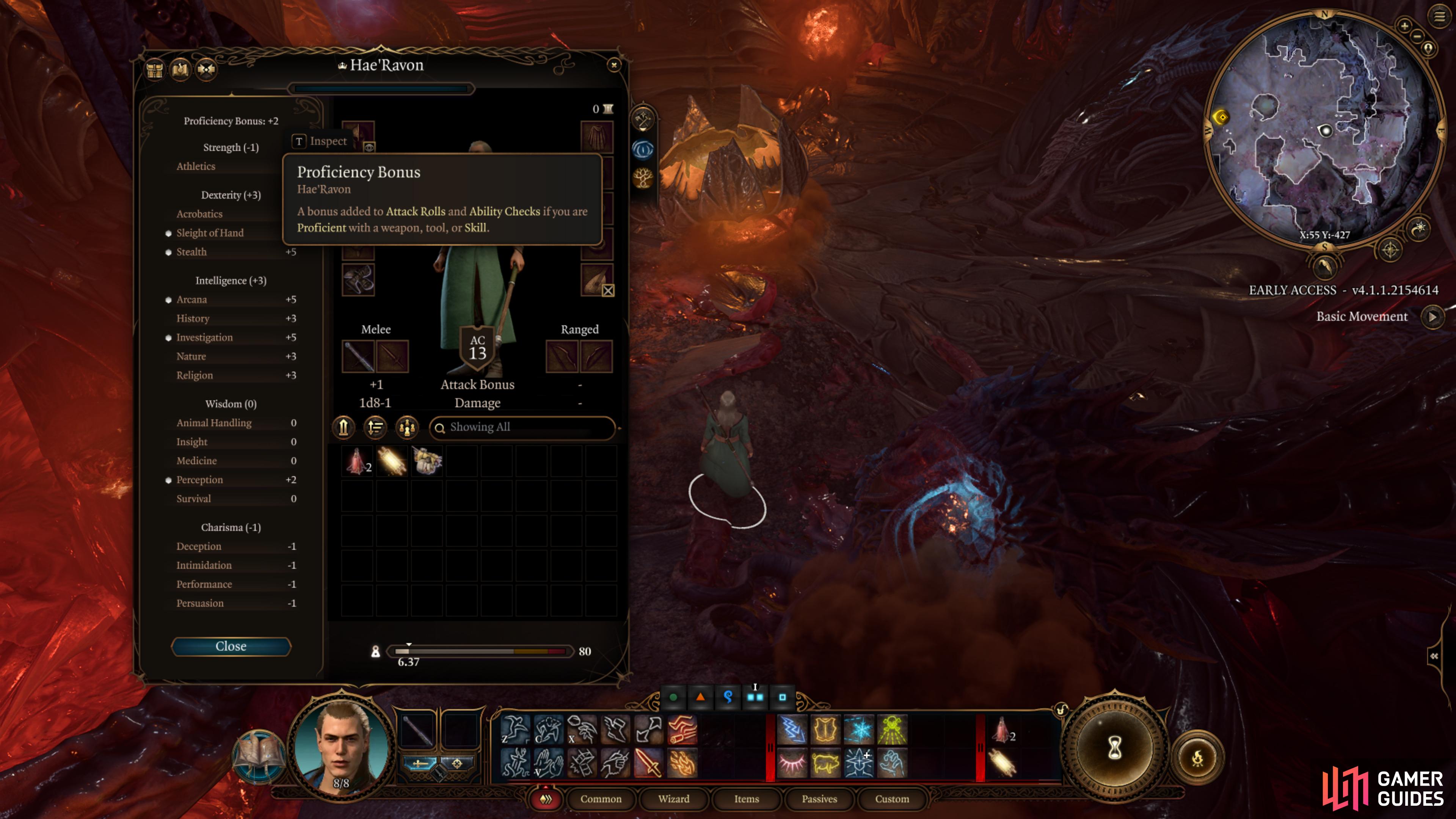
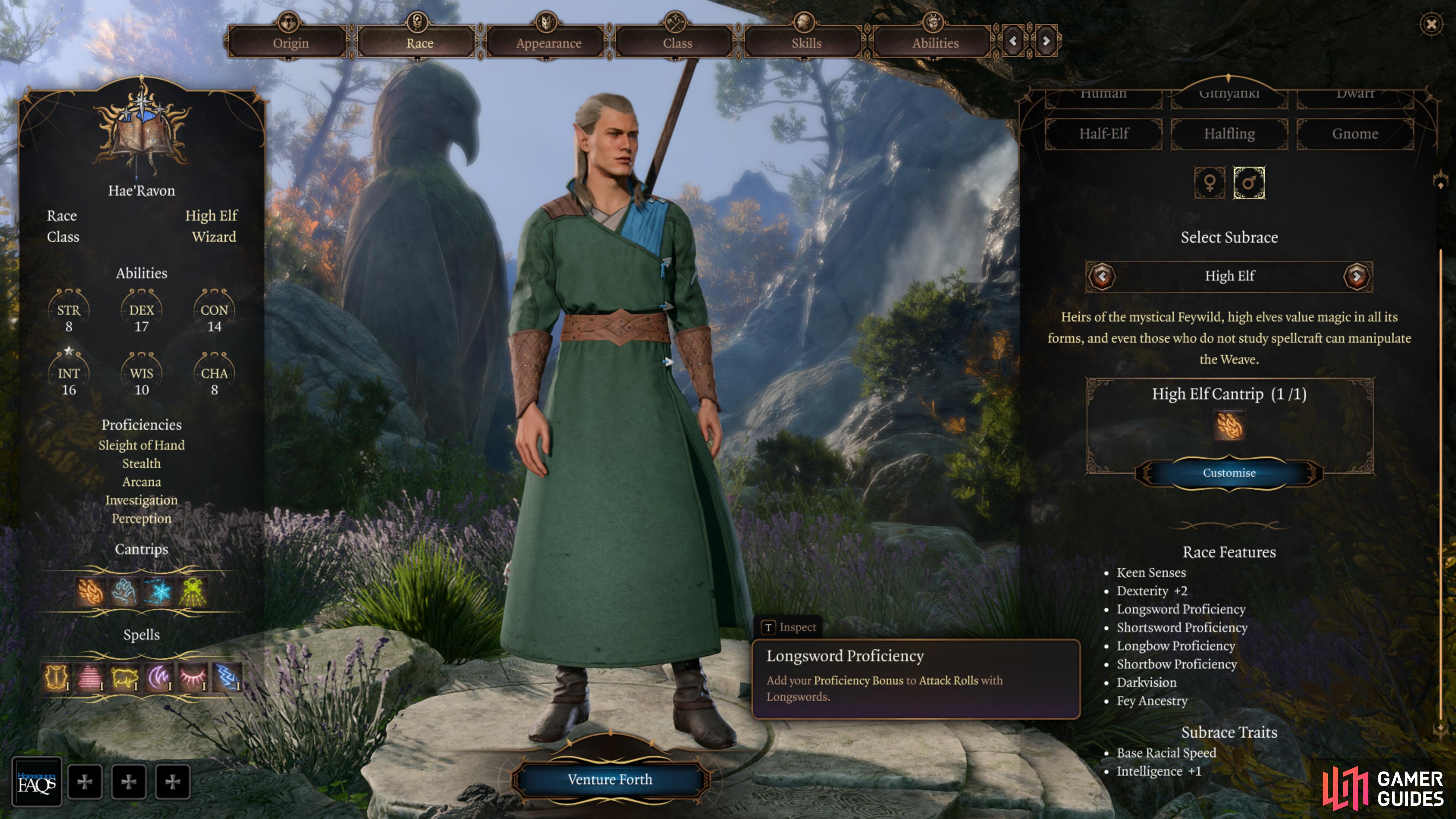
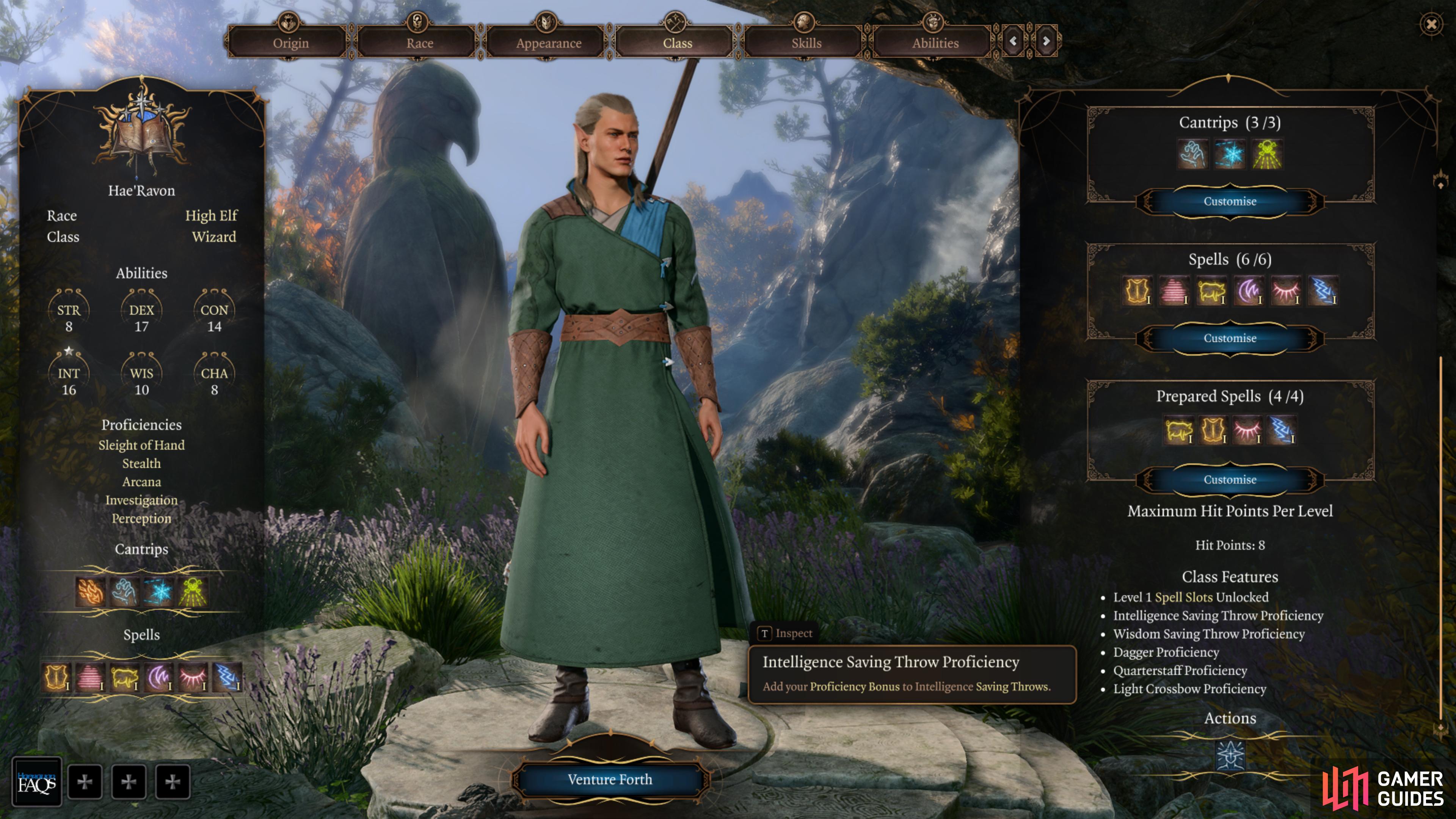
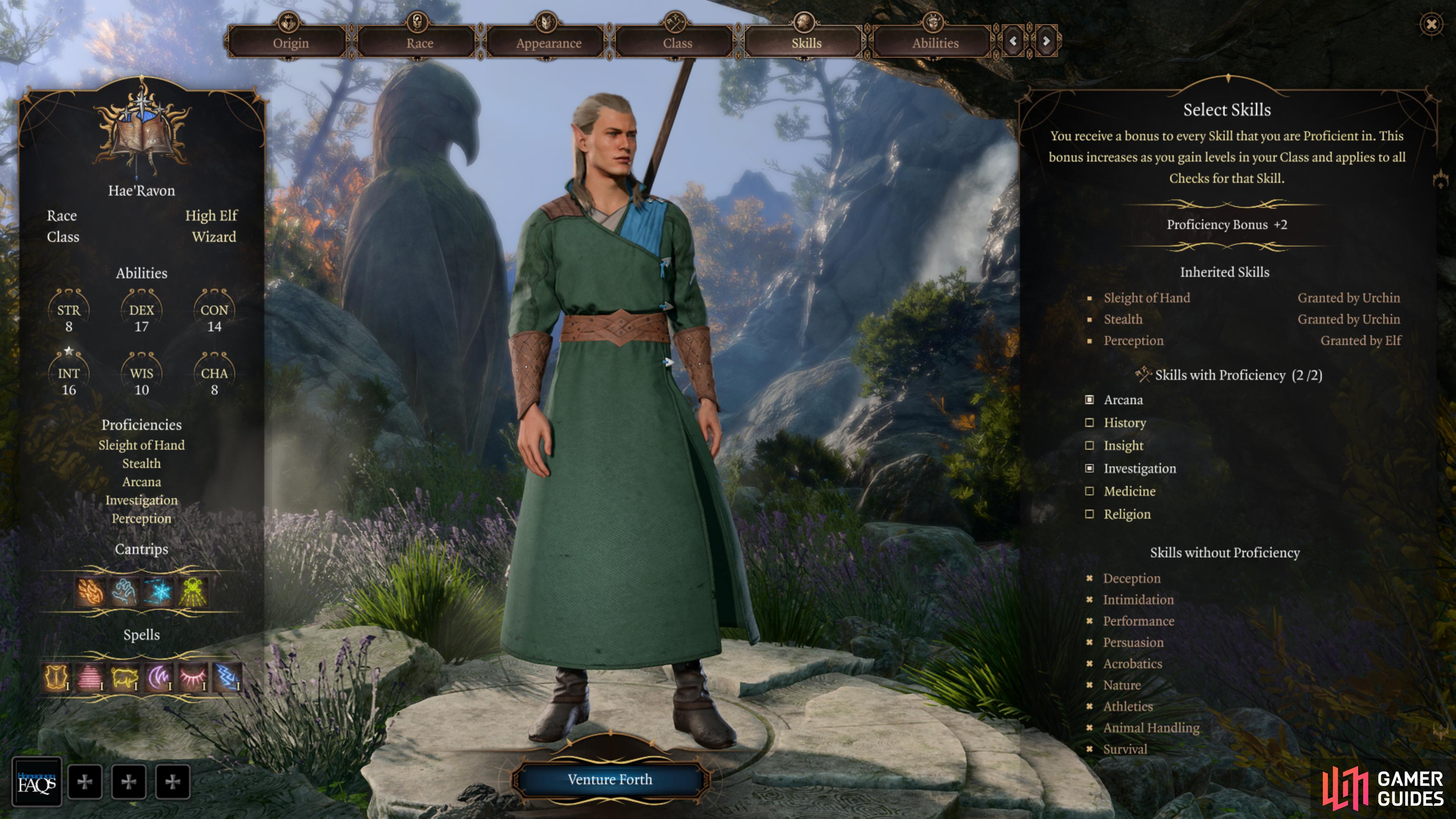
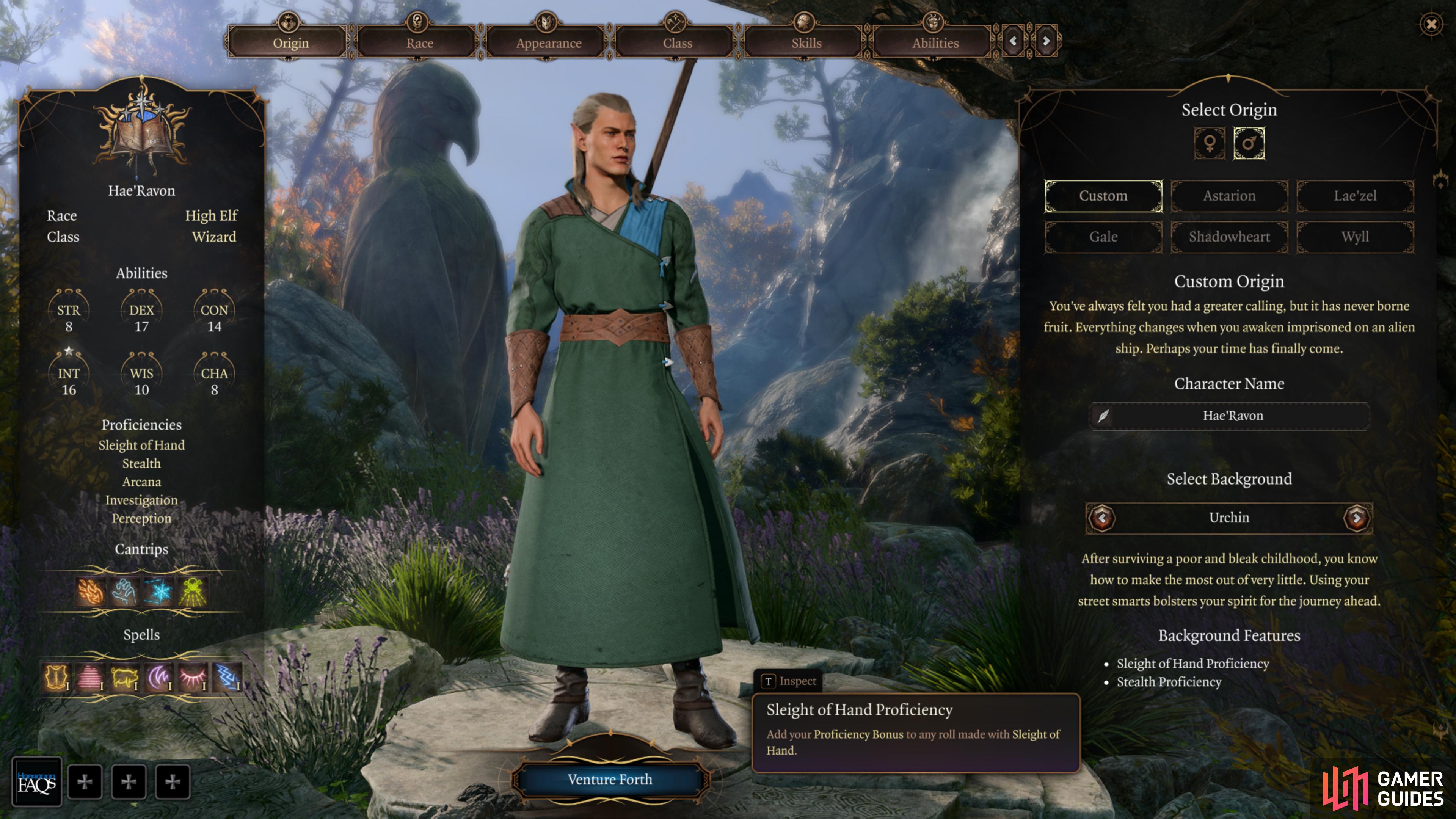

 Sign up
Sign up
No Comments